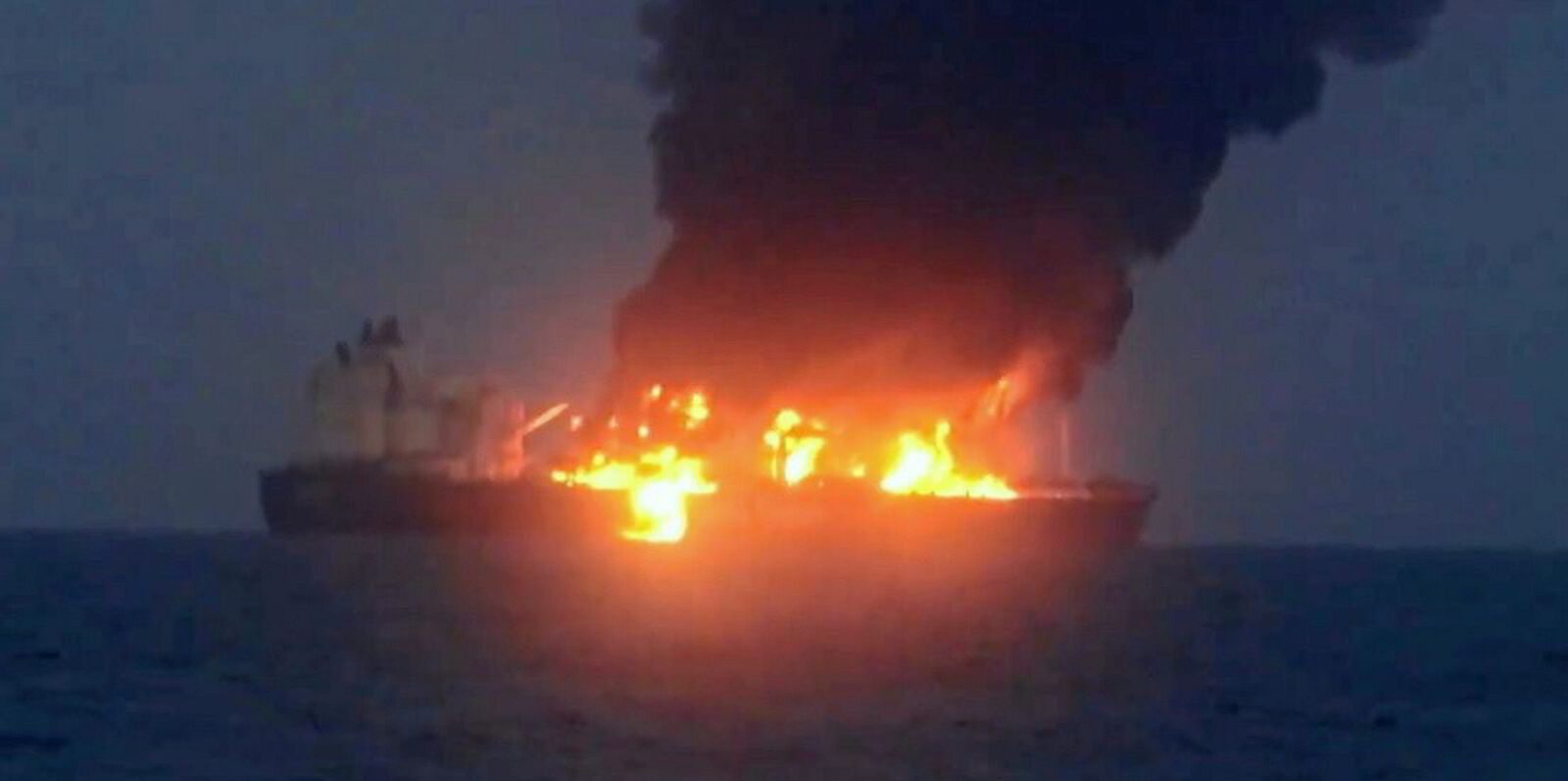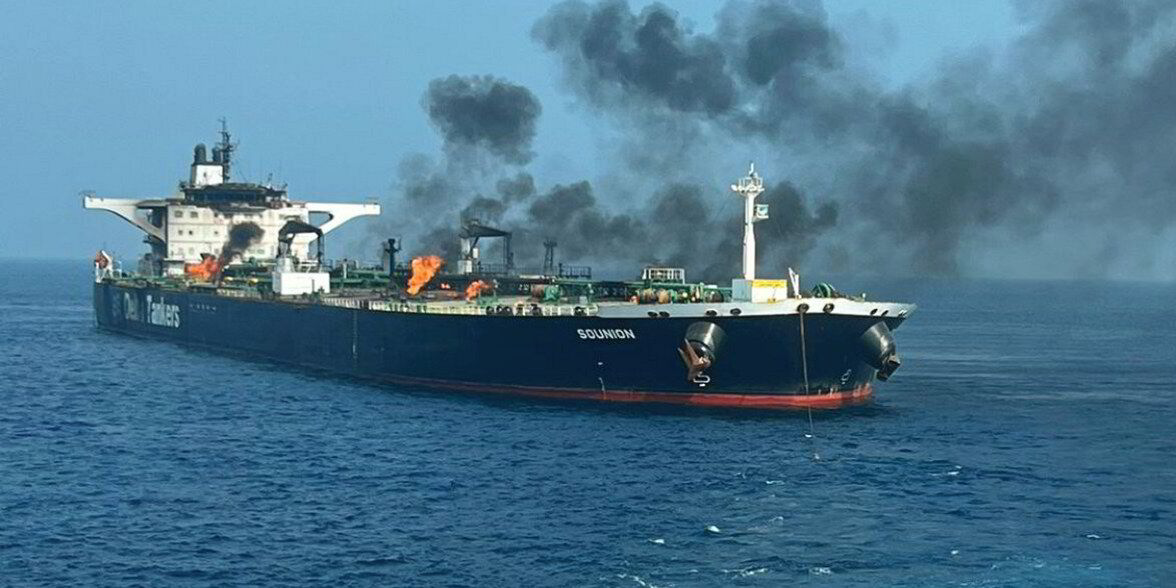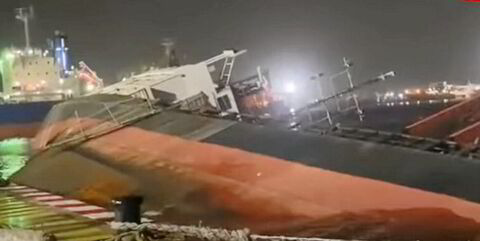UK authorities and maritime intelligence sources have reported two incidents that mark the first Houthi attacks on commercial vessels in the Red Sea in a month.
At 05:00 GMT, a sea drone punctured a ballast tank of the 163,300-dwt tanker Cordelia Moon (built 2013) as it was sailing north-west of the Houthi-controlled port of Hodeidah in Yemen, the United Kingdom Maritime Trade Operations (UKMTO) said on Tuesday.
The damaged part of the ship is the port ballast tank No 6.
The suezmax was ballasting after delivering a cargo from Novorossiysk in Russia to Sikka in India.
In a statement later on Tuesday, the Houthis confirmed targeting the Cordelia Moon with multiple ballistic missiles and a sea drone, which resulted in “severe damage” to the vessel.
That rhymes with UKMTO information that the same ship was originally targeted more than three hours earlier, at 01:40 GMT, at which time its master reported sighting “four splashes in close proximity” as it was sailing 64 nautical miles (118 km) west of Hodeidah.
The Cordelia Moon reported no injury and at 08:37 GMT it was said to be proceeding to its next port of call.
In its statement confirming the strike against the ship, Houthi spokesman Yahya Saree described the Cordelia Moon as a “British oil tanker”.
Shipping databases show the ship since November 2023 under the ownership of Ultrapetrol Bahamas.
Greek bulker damaged
A separate attack against a different vessel was reported at 04:15 GMT, 97 miles north-west of Hodeidah.
The Greek-controlled 76,800-dwt Minoan Courage (built 2008) was hit by a missile, UKMTO said.
Maritime security firm Diaplous offered a different account of the incident, saying the ship in question suffered “severe damage” from a sea drone.
Officials at the vessel’s Athens-based manager, Modion Maritime, did not respond to a request for comment.
No injuries among the crew of the bulker have been reported so far by Diaplous or UKMTO.
In his statement late on Tuesday, Houthi spokesman Saree did not confirm a strike against the Minoan Courage.
Instead, he claimed that his group carried out a strike against another Greek-controlled vessel in the Arabian Sea — the 5,000-teu Marathopolis (built 2013).
“The ship was targeted by a drone and was directly hit,” Saree said.
Managers at US-listed Costamare, which owns the Marathopolis, did not immediately respond to a request for comment. According to the Houthis, the ship was targeted because it traded in Israel.
Vessel trackers show the Marathopolis currently moored in Oman after a trip from Mombasa.
No maritime intelligence source has confirmed a Houthi strike against the vessel yet.
The break is over
These are the first recorded attacks on commercial vessels by the Yemeni rebel group since 1 September, when missiles and drones hit the 148,600-dwt tanker Blue Lagoon I (built 2003) and the 298,900-dwt VLCC Amjad (built 2017).
Another incident on 17 September around the 76,500-dwt bulker G Atlantic (built 2004) was not an attack but rather a suspicious radio contact reported by the vessel to authorities.
The reasons for the one-month lull in Houthi activity are unclear.
It was certainly not due to any lack of means to attack vessels.
On 27 September, the Iran-backed rebels — who oppose Israel and its Western allies in the widening conflict in the Middle East — claimed to have launched 23 missile and drone attacks against three US warships in the Red Sea.
The Pentagon confirmed the incident but said none of its ships came to harm.
Monday’s attacks come two days after Israeli warplanes bombed Hodeidah, in response to a Houthi missile attack on Tel Aviv.
They also coincided with the build-up to Israel sending ground troops into Lebanon.





